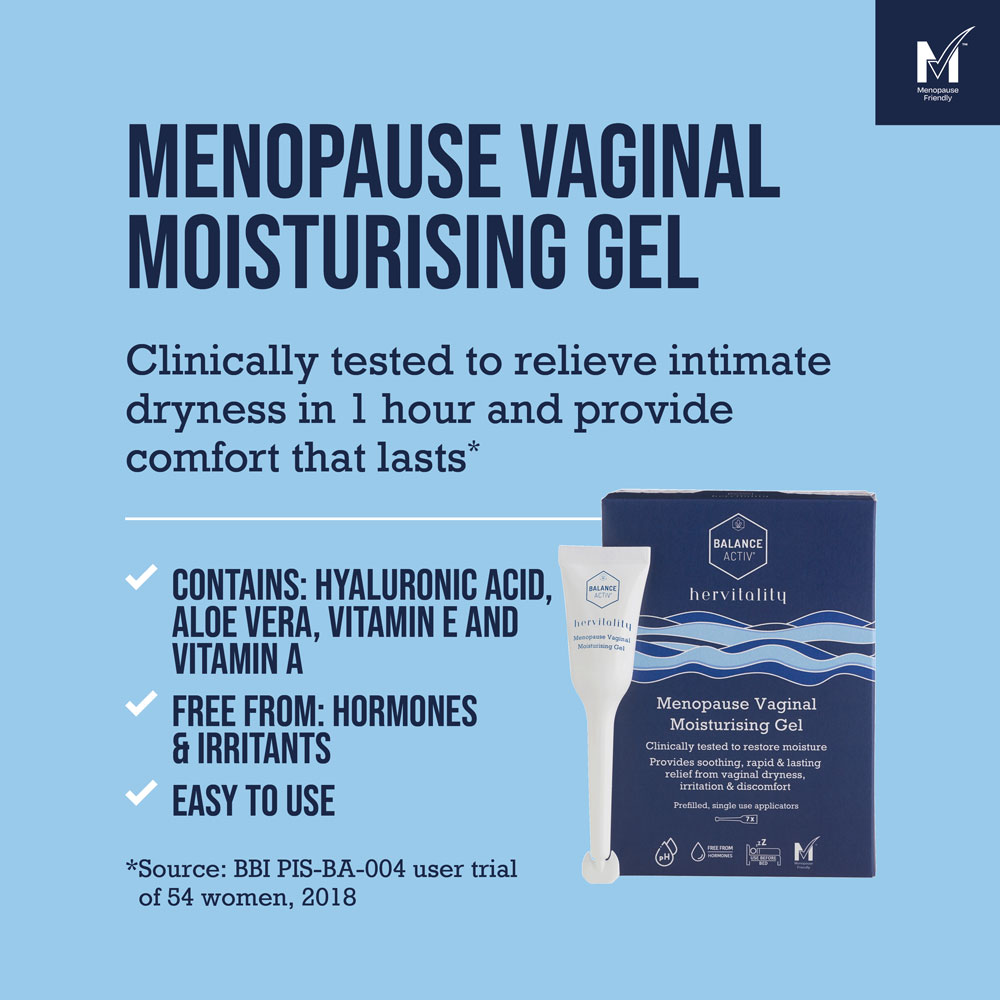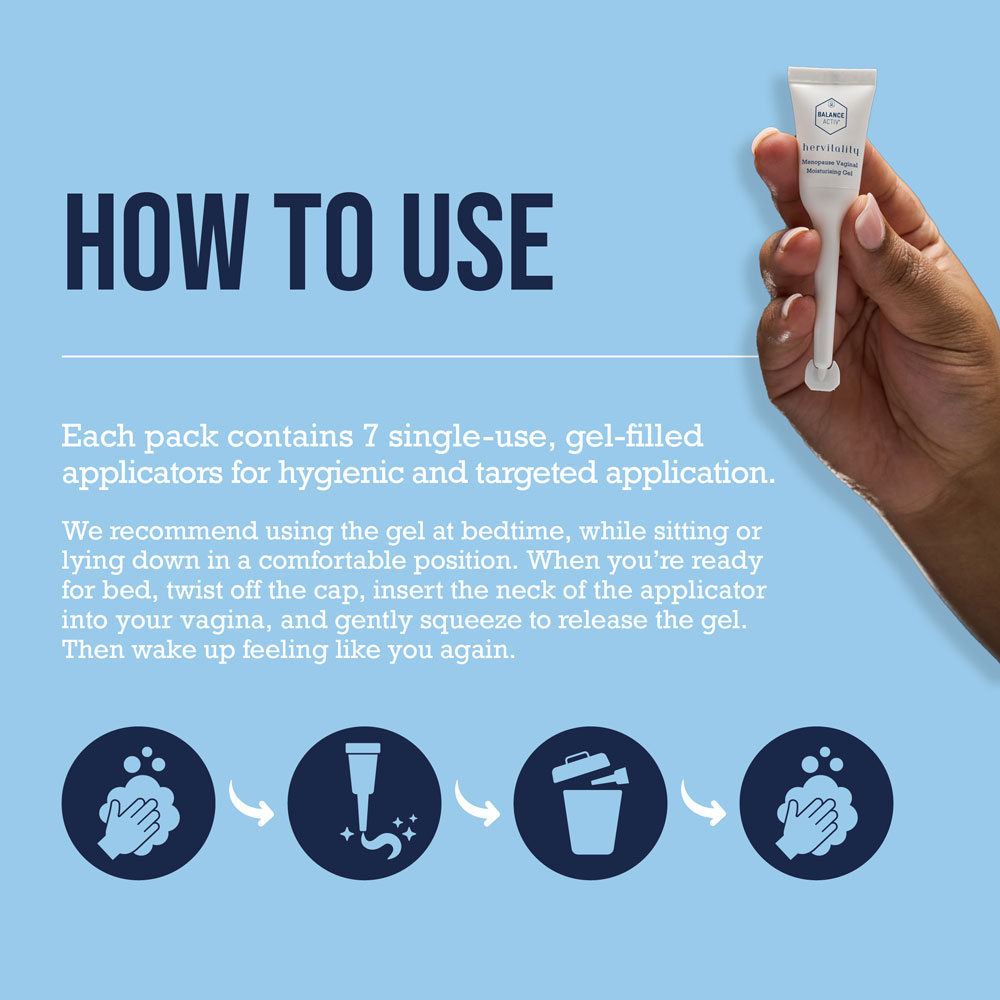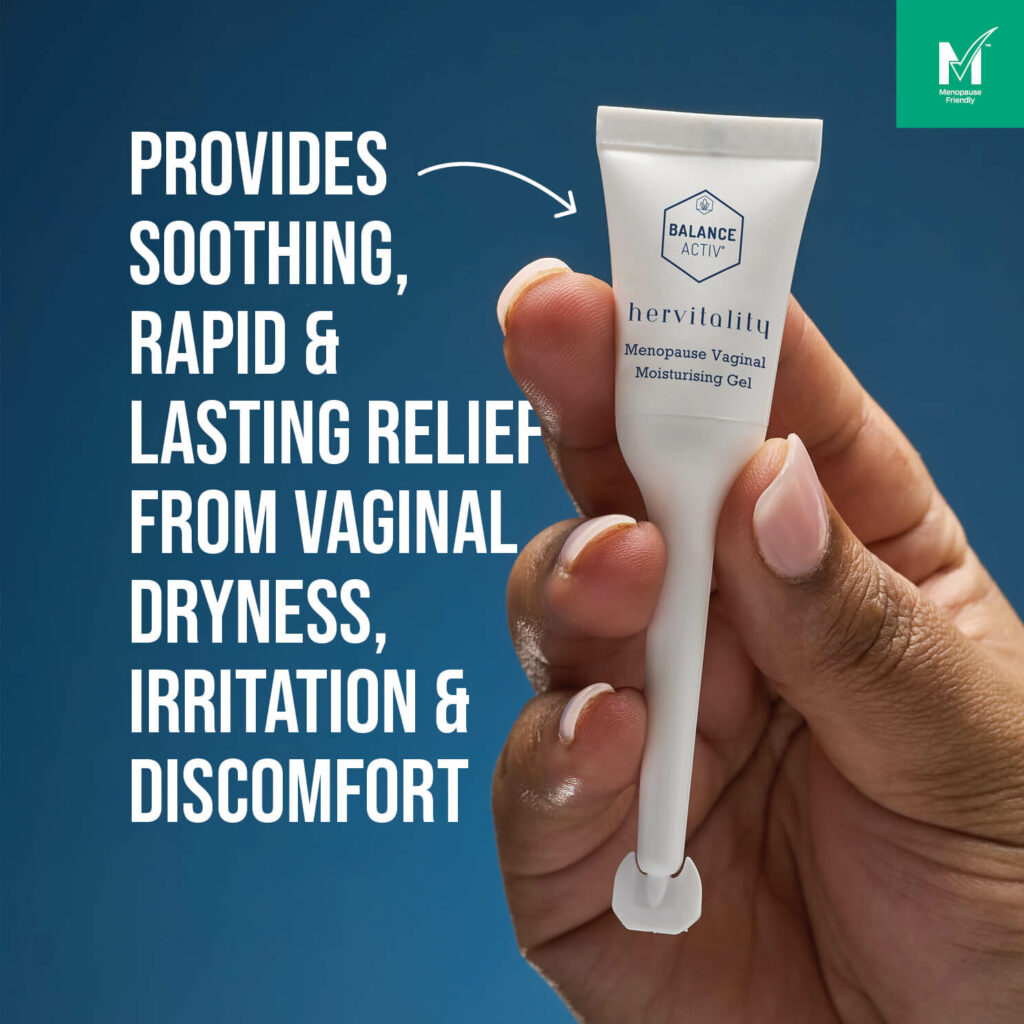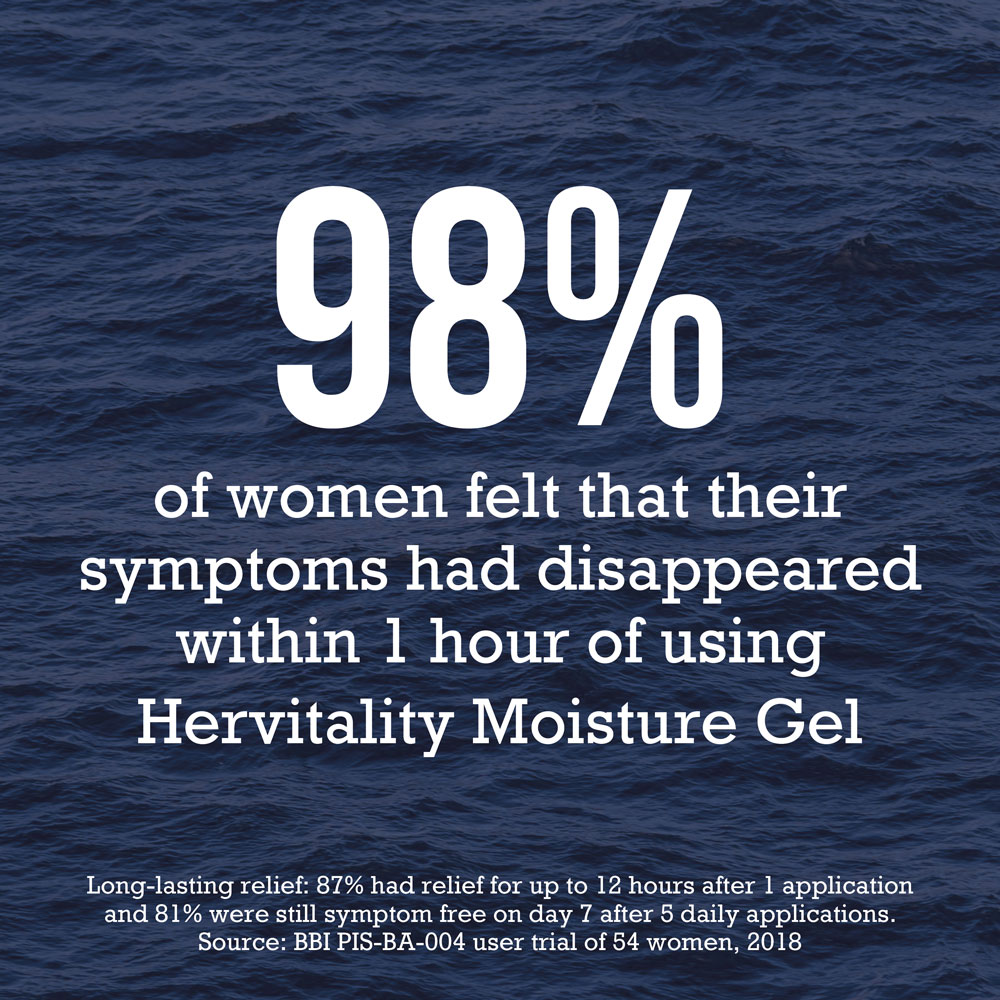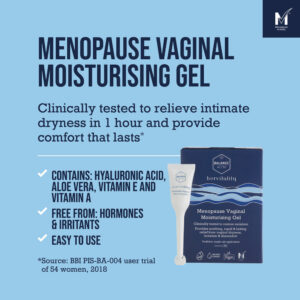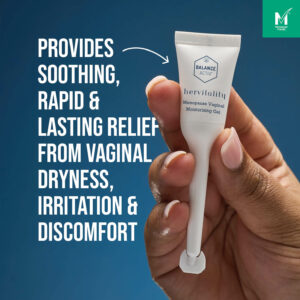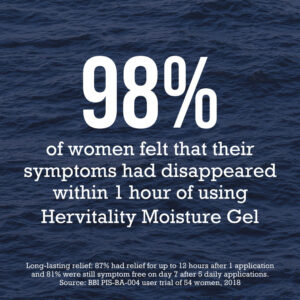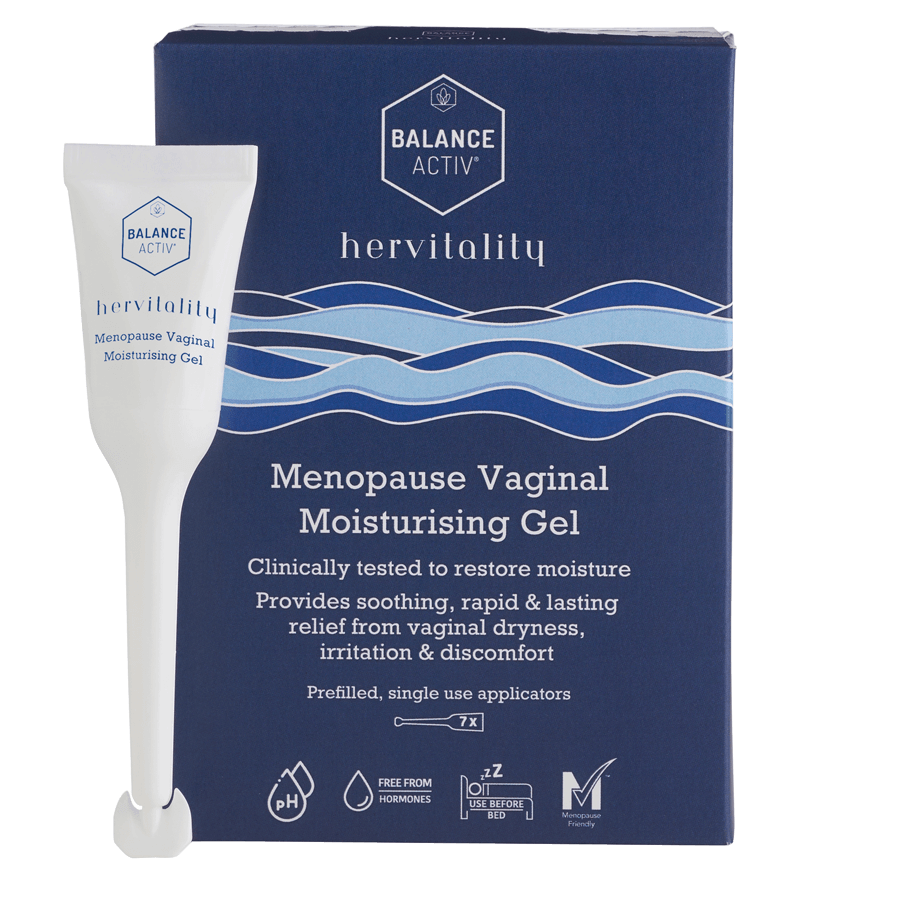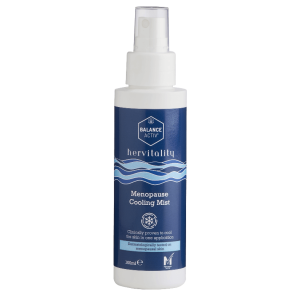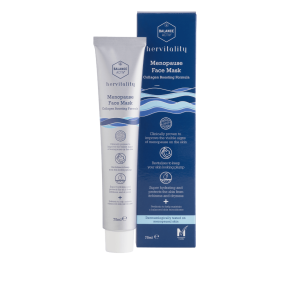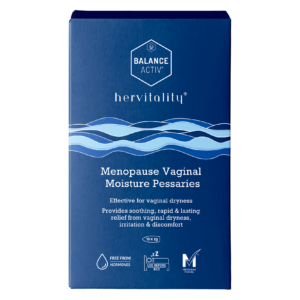Hervitality Moisture Gel
Rapid and Lasting Relief from Vaginal Dryness and Discomfort
7 Gel-Filled Applicators
naturally effective, water-based vaginal moisturiser, Balance Activ HerVitality Moisture Gel works in harmony with your body to restore moisture, providing fast relief from intimate dryness and long-lasting comfort.
Feeling dry down there? Hervitality Moisture Gel has you covered. This vaginal moisturiser is clinically tested to provide fast1 and long-lasting2 relief from intimate dryness and discomfort. In fact, in independent tests, 56% of women had relief within just 1 minute and 98% in 1 hour of using Balance Active Moisture Gel.
1. Fast relief: 56% had relief within 1 minute and 98% had relief within 1 hour after 1 application. Source: BBI PIS-BA-004 user trial of 54 women, 2018
Naturally working: Works with the body to restore moisture using hyaluronic acid, a key component of natural vaginal fluid.
Fast: Delivers proven relief from intimate dryness within 1 hour1 and comfort2 that lasts.
Skin-friendly: Provides a pH-balanced, hormone- and irritant-free formulation that’s gentle enough for daily use.
Soothing: Soothes without stickiness thanks to its odourless, clear, and lightweight formula that make you feel natural and comfortable.
Easy to use: Comes with 7 single-use, gel-filled applicators designed for hygienic and targeted application.
Each pack contains 7 single-use, gel-filled applicators for hygienic and targeted application. We recommend using the gel at bedtime, while sitting or lying down in a comfortable position.
When you’re ready for bed, twist off the cap, insert the neck of the applicator into your vagina, and gently squeeze to release the gel. Then wake up feeling like you again
Designed to work in harmony with the body, Balance Activ Moisture Gel contains hyaluronic acid – a key component of vaginal fluid – to restore your natural lubrication and enriched with Vitamin E and Aloe Vera for extra comfort.
Free from hormones
Phosphate Buffered Saline, Sodium Hyaluronate (Hyaluronic Acid), Phenoxyyethanol, Methylparaben.
